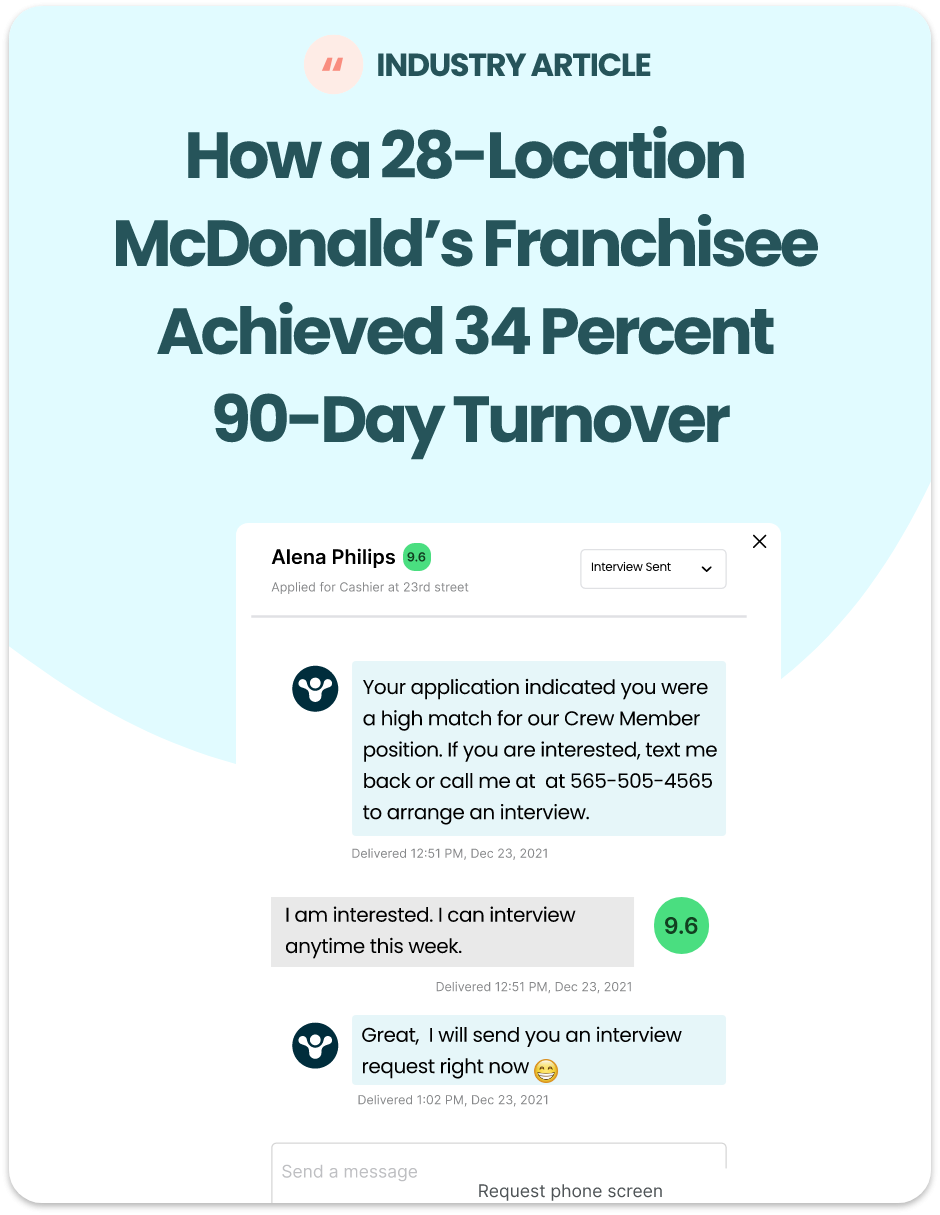Suppose a guest asked you how your hotel is positively contributing to the environment and what green practices your brand currently follows. What would you say? It’s important to not only be prepared to answer these types of questions, but to have sustainable practices in place as 73% of U.S. travelers believe sustainable travel is now “vital.” Take a look at these sustainable ideas so you can reduce your hotel’s carbon footprint and attract more travelers.
Of course, hotel sustainability starts with employees who truly care about bettering the environment. Find more passionate, driven individuals that will succeed and stay long-term with this hiring solution that’s proven to increase staff retention by 43%, on average.
What Is Hotel Sustainability?
“Going green” is much more than a marketing strategy or trendy buzzword. Sustainable hotels are eco-friendly lodging businesses that truly make an effort to reduce their energy, water usage, and waste to benefit the environment.
Why Is Hotel Sustainability Important?
Since the pandemic, sustainable hotels are more important than ever to travelers. When stopping to rest at a hotel, resort, or motel, 48% of travelers are frustrated when they discover the business fails to follow green practices such as recycling or composting. Additionally, 67% of guests would actually spend more money if it would “reduce the environmental impact of their stay.” Your guests have spoken — it’s time to implement eco-friendly concepts at your hotel.
Sustainable Hotel Ideas and Solutions
1. Encourage Staff and Guests to Recycle
This one may seem obvious, but you’d be surprised how many hotels aren’t already recycling. 14 million tons of plastic are dumped into our oceans every year. Reduce the amount of waste that gets thrown into landfills (that inevitably ends up in the ocean) by recycling as much as possible. Encourage guests to do so by placing small recycling bins in common areas, outside the building, and small ones inside every guest room.
2. Try Composting
Does your hotel or resort offer a complimentary breakfast or meal? If so, composting will be a piece of cake. Hang a “Compost” sign near the trash and recycling bins. Guests can add banana peels, fruit cores, egg shells, and any other compost-friendly materials. Composting improves plant growth, reduces water runoff, locks in minerals and nutrients, and helps control soil erosion. You can even mix your compost into the soil of your hotel garden or around the landscape perimeter.
3. Buy Food Locally and Start a Hotel Garden
When people travel, they want an authentic experience. What better way to show the taste of your location than by sourcing all your food and beverages from local farms and grocery stores? For example, say your hotel is located in Door County, Wisconsin. You could showcase the town’s famous cherries, cheese, and wine. Or, if you really want to get your hands dirty, consider planting a garden at your hotel, providing your guests with fresh fruits and vegetables. This sustainable practice reduces greenhouse gas and fossil fuel emissions because food trucks aren’t traveling thousands of miles to your hotel. You’ll save money on shipping costs and the food will be fresher (and healthier) for your guests.
4. Implement Biodegradable Straws
Even small changes like this can have a big impact. InterContinental Hotels Group (IHG) and Marriott International eliminated plastic straws from their locations worldwide, removing about 1 billion plastic straws from the oceans and landfills. IHG CEO, Keith Barr, stated, “There is always more we can do to minimize waste, but the work we’re doing to reduce single-use plastic is a powerful example of how we can come together with guests, owners and colleagues to drive positive change.”
5. Place Occupancy-Based Sensors in Every Hotel Room
These sensors are an energy conservation technology that can easily be placed in hotel rooms. They’re able to detect when a room is unoccupied and shut off the power. It’s a plus for eco-friendly guests because they can relax without having to worry about wasting energy (or turning lights on and off). Occupancy-based sensors also benefit hoteliers because they dramatically reduce hotel energy cost per room.
6. Switch to LED Lighting
Energy-efficient LED lights are a growing technology in the hotel industry. Why? They save up to 20 to 25% of energy compared to traditional, iridescent lighting. LED lights even last longer, saving you time and money you would normally spend on high electric costs.
7. Add More Houseplants to Your Common Areas
Not only are live plants aesthetically pleasing and relaxing, but the right ones can purify your air through photosynthesis. The process converts the carbon dioxide we breathe out into oxygen. Plus, houseplants clean your air, removing harmful toxins. Especially during a pandemic, adding live plants to your lobby, guest rooms, and other areas of your hotel will positively impact the environment and enhance your guests’ experience.
8. Go Paperless With an Automated Hiring Process
Say goodbye to piles of paperwork when you transform your hiring process with Sprockets! Our Applicant Matching System empowers hoteliers to predict applicant success before the interview and without a resume. How is this possible? The process is simple — your current top performers answer three brief questions and receive a Fit Score out of ten. Their scores will then be used as a benchmark to predict the success of incoming applicants who take the same survey. It’s proven to work and trusted by top brands like Taco Bell to increase employee retention by 43%, on average. In fact, we’re so confident in the accuracy of our solution that we hire and retain our own team members with Sprockets.






























